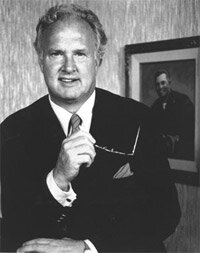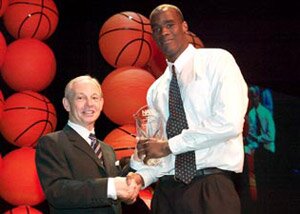 |
 |
 |
|
|
||||||||||||||
|
|
||||||||||||||
| Email Article | Printable Page |
Paul Hornung Was Wrong, but Many Think Like That
 |
|
Photo credit: paulhornung.com
Paul Hornung said he was wrong the day after his comments about black athletes created a firestorm.
|
When former Green Bay Packers and Notre Dame football great Paul Hornung made his controversial comments about the black athlete, many people threw up their arms in exasperation. The word �racist� circulated faster than The Final Call newspaper does on Market Street Mall in Wilmington, Del., on a Saturday afternoon.
During a March 29 radio interview, the 1955 Heisman trophy winner said that Notre Dame has to "ease it up a little bit" on its standards.
"We can't stay as strict as we are as far as the academic structure is concerned because we've got to get the black athlete," Hornung said, according to the Associated Press. "We must get the black athlete if we're going to compete."
Hornung's statement was not racist. It was simply a case of someone failing to think before speaking.
"I was wrong," he told the Associated Press the next day, after creating a firestorm. "What I should have said is for all athletes it is really tough to get into Notre Dame."
Hornung was right to admit his mistake. Not all black athletes are dumb pieces of meat who sell out to highest bidder or the college with the easiest groupies.
Emeka Okafor, the star basketball player at NCAA champion University of Connecticut, is leaving school after three years, not just because he stands to make a ton of money in the NBA; he�s graduated already with his degree in accounting. I�m quite sure that fine New England institution didn�t lower its standards for this member of the NCAA Academic All-America team.
 |
|
Photo credit: University of Connecticut
Emeka Okafor of the University of Connecticut, congratulated as National Association of Basketball Coaches Co-National Player of the Year, is graduating in three years.
|
Although his career is in shambles due to an off-season motorcycle accident, Chicago Bulls guard Jay Williams also graduated in three years -- from Duke, no less. Does Duke lower its standards at a school that produces award-winning neurosurgeons and political powerhouses?
It is well-documented that all student athletes must meet NCAA eligibility requirements in order to play on the college level. Proposition 48, passed in 1983, mandates that athletes score at least 700 on the SATs, or a 17 on the ACTs, and have at least a 2.0 grade point average in 11 courses in core classes. While those aren�t unreachable standards, they are standards nonetheless -- standards that athletes, black, white or indifferent, have met with relative ease in this proposition's 21 years.
Hornung's statement brings to mind last fall�s outcry after Rush Limbaugh said on ESPN�s "NFL Countdown" that the media just want to see the Philadelphia Eagles' Donovan McNabb succeed because he�s a black quarterback, and that he�s highly overrated. People jumped all over Limbaugh for being �racist� and �insensitive,� when he simply was foolish enough, or had the intestinal fortitude, to articulate what many were thinking. Quite a few African American football fans say that McNabb�s passes are too soft for anybody to catch, or that he�s not as good as the hype.
Many members of the good-old-boy network still have the notion that black athletes, and blacks as a whole, don�t belong in �their� society.
Hornung was just insane enough to say it aloud.
Posted April 15, 2004
In Voices
It Was Surreal in Jena, 45 Miles from My Hometown
Before Condemning Michael Vick, Consider Ignorance, Stupidity — and Insanity
| Home | News | Sports | Culture | Voices | Images | Projects | About Us Copyright © 2007 Black College Wire. Black College Wire is a project of the Black College Communication Association and has partnerships with The National Association of Black Journalists and the Robert C. Maynard Institute for Journalism Education. |